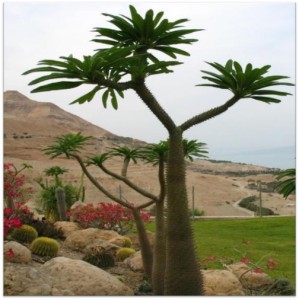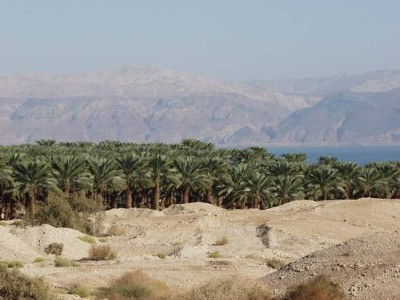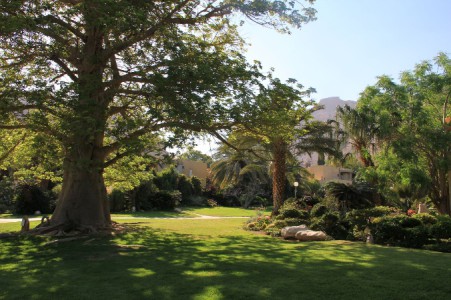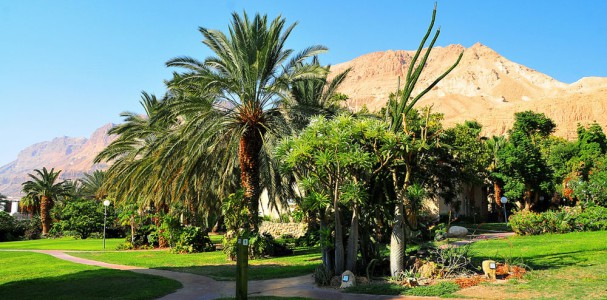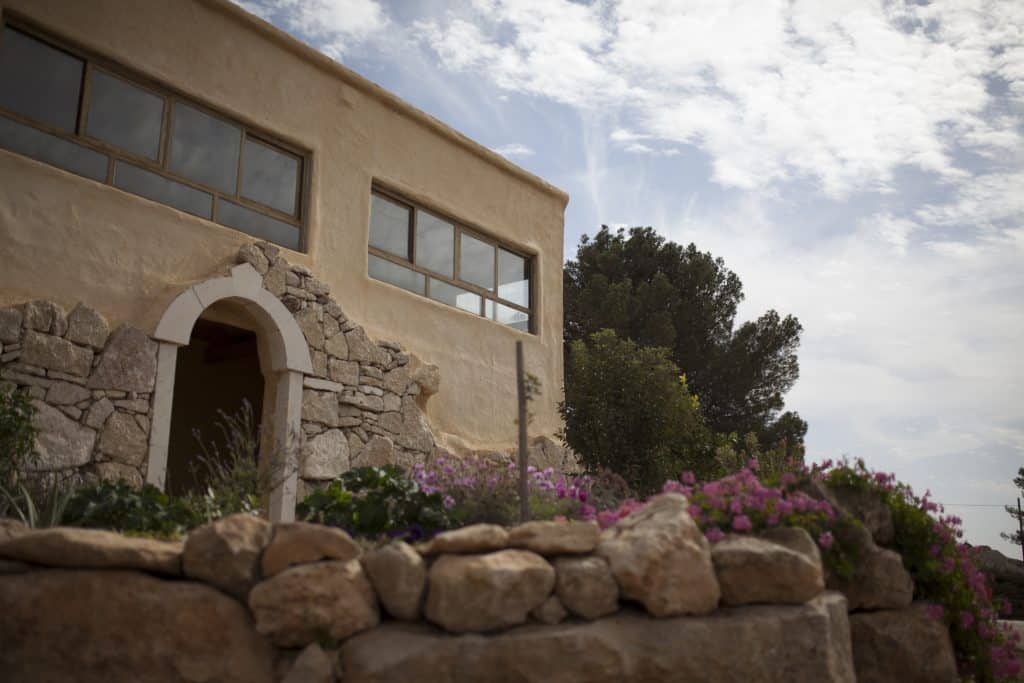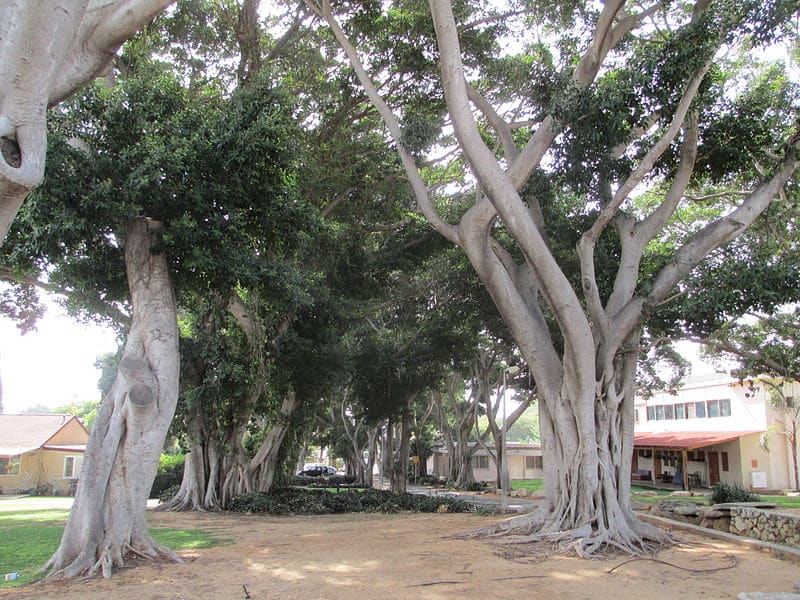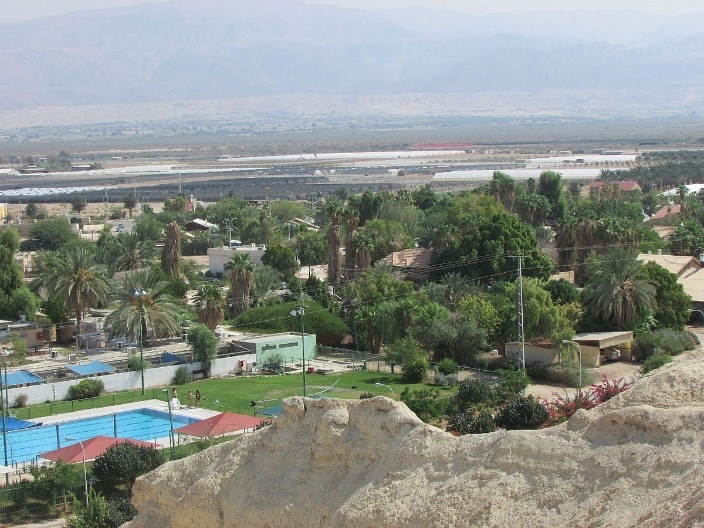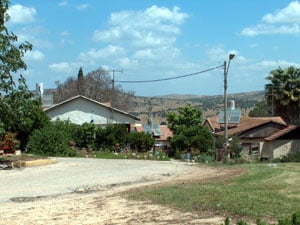Ein Gedi
My beloved to me is a spray of henna blooms from the vineyards of Ein Gedi. Song of Songs 1:14 Ein Gedi is a ‘Kibbutz’: The word kibbutz means ‘gathering’, however the first kibbutzim were called ‘kvutza’ which means group. A collective community, traditionally based on agriculture but today, the over 200 kibbutzim in Israel have diversified greatly […]
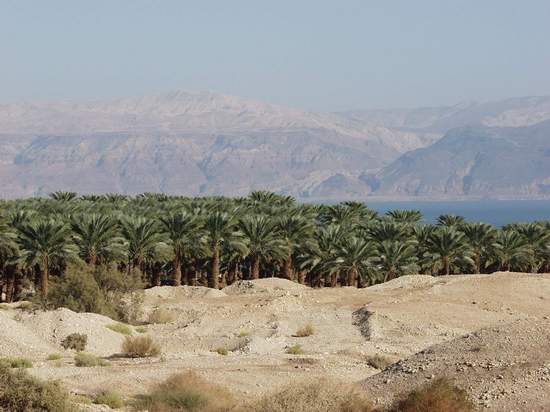
My beloved to me is a spray of henna blooms from the vineyards of Ein Gedi.
Song of Songs 1:14
Ein Gedi is a ‘Kibbutz’:
The word kibbutz means ‘gathering’, however the first kibbutzim were called ‘kvutza’ which means group. A collective community, traditionally based on agriculture but today, the over 200 kibbutzim in Israel have diversified greatly since their agricultural beginnings with many now privatized. Regardless of their status, the kibbutz offers a unique insight into Israeli society, and are fascinating places to visit.
‘Ein Gedi’ is the name of a spring which flows from a height of 656 feet above the Dead Sea. In the Bible, the wasteland near the spring where David sought refuge from Saul is called “the wilderness of En-Gedi” and the enclosed camps at the top of the mountains, the “strongholds of En-Gedi.”
In 1953 a kibbutz was established nearby and took the name Ein Gedi. Its primary function was initially defence; but it also successfully developed farming methods adapted to the local conditions of a hot desert climate and an abundance of fresh water from the Ein Gedi Springs. An area surrounding the Springs has been declared a nature reserve. A field school of the Society for the Preservation of Nature, a youth hostel and a recreation home are all situated there.
Today, Kibbutz Ein Gedi is a community of approximately 600 people. Members, children, residents and temporary workers reside together on the mountain plateau in the famous Botanical Gardens. The primary income is from tourism and this is made up of a beautiful, ground level hotel, two spas, the gardens, B&B accommodation, campsite and in the surrounding area; nature reserve, ancient synagogue and hiking in the mountain range.
Established in 1956, originally as a military hold in the valley in 1953, the community today is the largest on the Dead Sea shores of the Tamar Regional Council and houses the regional junior high and high school, the new AHAVA cosmetics factory, date plantations and a vibrant society working for the common good. The kibbutz was privatised in 2006 and today the members are financially independent, homeowners and employed either in the kibbutz businesses or by city companies. The atmosphere is still one of ‘togetherness’ and ‘fellowship’ and this is seen in volunteer work in cultural activities, assisting the elderly and disabled, Jewish holiday celebrations and more. There is a beautiful, modern theatre situated on the grounds of the kibbutz as well as swimming pool, gym and tennis courts.
The regional school is situated in the grounds and the community run a ‘boarding’ facility for children from throughout Israel who are looking for the ‘hands on’ education of smaller classes, personal attention and life skills learning.
Kibbutz life has changed drastically over the past 40 odd years but nonetheless the community is growing with new development, the young have grown, had families and are now running the village and its businesses and despite the receding shorelines of the Dead Sea life looks good for everyone.

